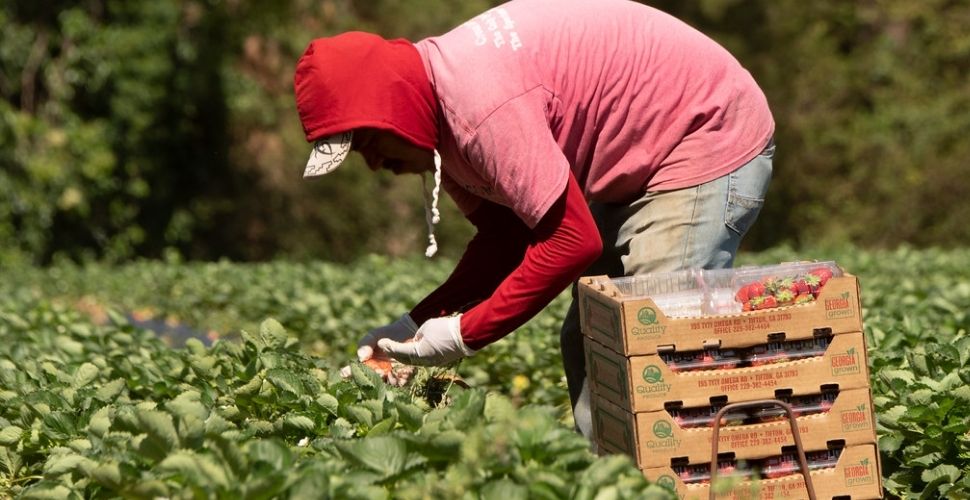Migrant worker exploitation isn’t unique to Qatar – the U.S. has work to do

Appalling treatment of low-paid migrant workers in Qatar has been under the spotlight as the World Cup gets underway.
Amid intense scrutiny on Qatar's human rights record and its treatment of migrant workers, activists in the U.S. are raising their own concerns about similar treatment in the U.S. and inviting us to look inward at the conditions migrant workers experience closer to home.
Exploitation in the U.S.
Julie Taylor, Executive Director of the National Farm Worker Ministry in North Carolina explained how migrant workers in the U.S. are experiencing similar conditions to those in Qatar. She told VOA:
Those issues include “being forced to work through extreme heat waves, wage theft, poor housing, lack of access to healthcare, a shortage of personal protection equipment,” Taylor said. “The tragedy in Qatar shouldn't be tolerated, and it's also an important opportunity to remind of the tragedies happening in our own backyard.”
There an estimated 12 million migrant workers in the U.S. who are essential to keeping key industries running and assuage a labor shortage that would be much worse without their participation in the labor market. A number of these workers are working without the required paperwork meaning they don't have access to labor protections and are more vulnerable to exploitation at the hands of abusive employers.
As Shannon Lederer from the AFL-CIO union federation says, “migrant workers are contributing to nearly every sector of the economy and they're also being exploited in all of them”.
The migrant workforce is, in many ways, the backbone of the U.S. economy. Following Hurricane Katrina in 2005 which devastated large parts of Louisiana and almost entirely destroying New Orleans, it was migrant workers who helped rebuild. Lederer said:
“Most of our migrant workers came from Mexico and elsewhere in Central America, and their efforts after the storm in debris removal, demolition, and eventually reconstruction have had a huge impact on our city.”
Disappointing inaction from California
Freedom United also launched a campaign in 2021 addressing trafficking and forced labor of temporary migrant workers in California. Our campaign called on California's Governor Newsom to sign a bill into law that would protect temporary migrant workers who are too often bound to exploitative work conditions by unscrupulous foreign labor contractors (FLCs).
The legislation would have required FLCs to be registered in California and for working conditions to be disclosed during recruitment. This would have made a significant difference, extending protections from the point of recruitment to all of California's temporary migrant workers, which every year number hundreds of thousands of people.
Disappointingly, Governor Newsom vetoed the bill giving reasons which expose a lack of understanding of what it takes to fight forced labor of temporary migrant workers and insufficient commitment to migrant workers' rights at the highest level in California.
The U.S. still needs to do a lot of work to ensure it's migrant workforce is better protected from exploitation and trafficking. We're calling on the U.S. and all governments to ratify the ILO Forced Labour Protocol (P29) so that all workers are protected and can access support.
This “Eyes on Trafficking” story is reprinted from its original online location.
 ABOUT PBJ LEARNING
ABOUT PBJ LEARNING
PBJ Learning is a leading provider of online human trafficking training, focusing on awareness and prevention education. Their interactive Human Trafficking Essentials online course is used worldwide to educate professionals and individuals how to recognize human trafficking and how to respond to potential victims. Learn on any web browser (even your mobile phone) at any time.
More stories like this can be found in your PBJ Learning Knowledge Vault.
EYES ON TRAFFICKING
This “Eyes on Trafficking” story is reprinted from its original online location.
ABOUT PBJ LEARNING
PBJ Learning is a leading provider of online human trafficking training, focusing on awareness and prevention education. Their interactive Human Trafficking Essentials online course is used worldwide to educate professionals and individuals how to recognize human trafficking and how to respond to potential victims. Learn on any web browser (even your mobile phone) at any time.
More stories like this can be found in your PBJ Learning Knowledge Vault.
